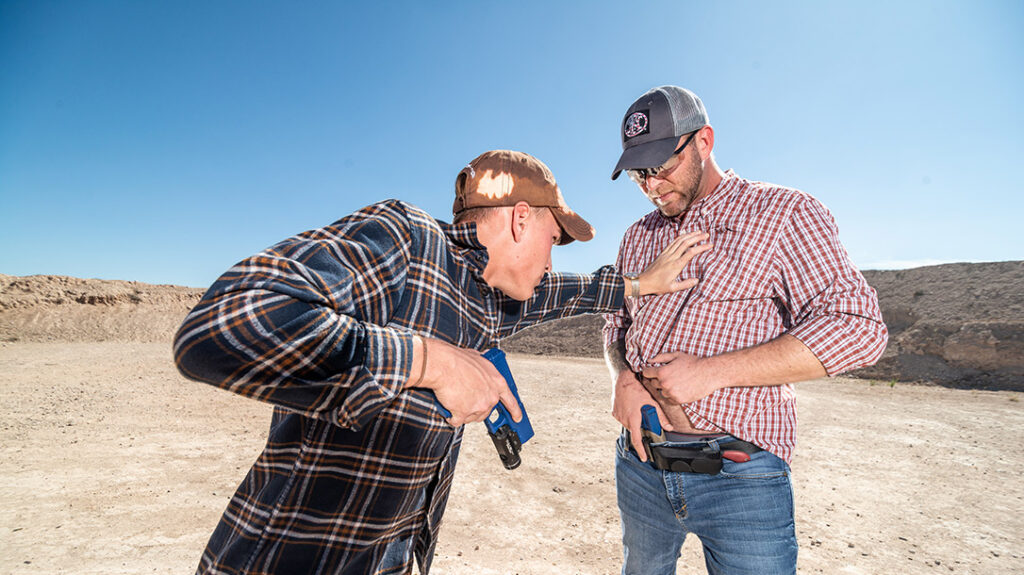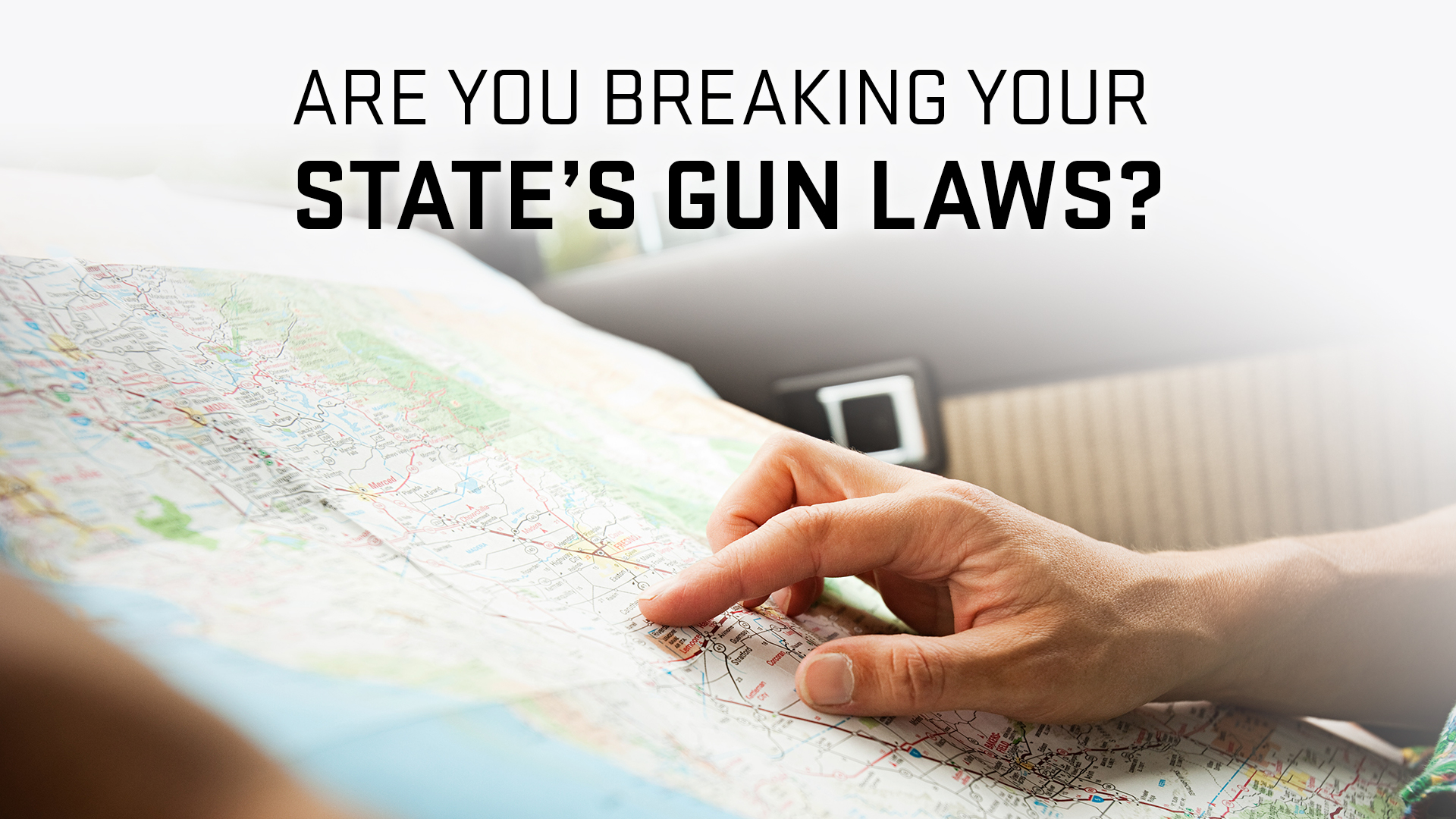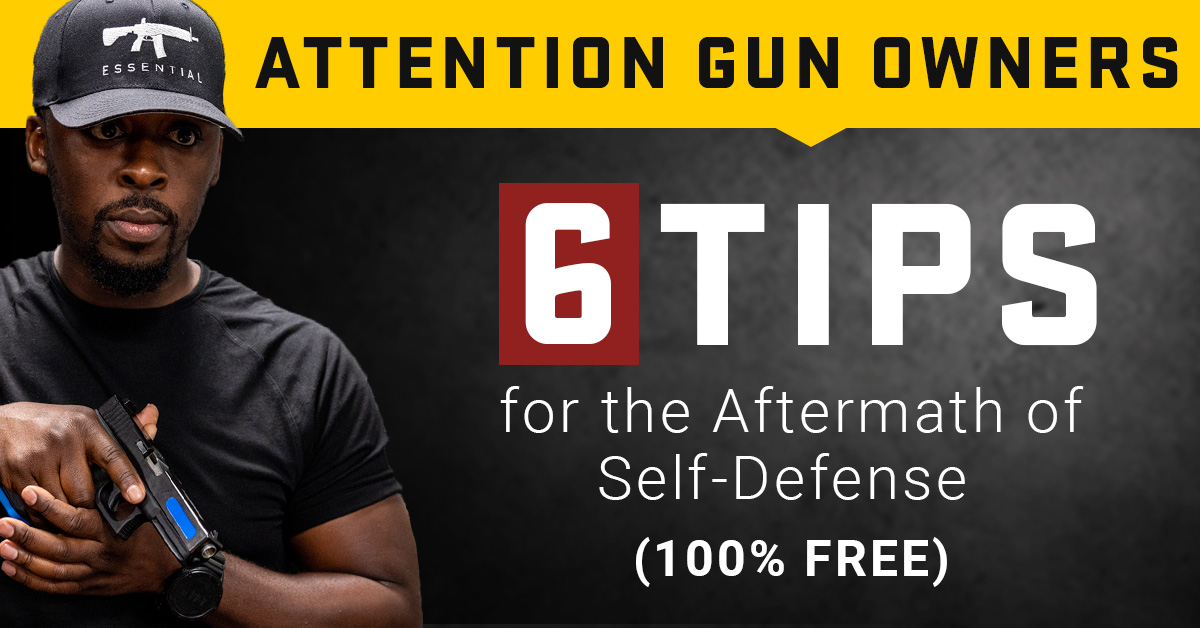Although I don’t normally quote from the Bible in this column it seems appropriate for this issue’s topic about whether or not to leave the scene following a shooting. Proverbs 28.1: “The wicked flee wherever no man pursueth, but a righteous man holds his ground as boldly as a lion.”
RELATED STORY
Close Quarters Self-Defense Techniques when Hands are on the Gun
A detailed look at whether to leave the scene
It’s also known as “flight equals guilty” in common parlance.
The principle is that the person who did the right thing in self defense will be allowed to remain on the scene to explain their actions. It is often assumed by cops and prosecutors, plaintiffs and their lawyers, and the general public, that the person who fled was doing so to avoid punishment for what they believed to be criminal wrongdoing. The court term is “consciousness to guilt.”
You are not automatically guilty if you leave the scene of the shooting. However, it is highly likely that the court will allow opposing counsels to argue that it does.
According to Jenny Brandt, appellate lawyer Jenny Brandt, the instruction to the jury could sound something like this: “If the defendant fled [or attempted to flee] immediately after the crime was committed/[or] after (he/she was accused of committing that crime), that conduct may indicate that (he/she/it) was aware (his/her/its) guilt. It is up to the jury to decide the significance and importance of the conduct if you conclude that the defendant fled [or attempted to flee]. But, evidence that the defendant fled [or attempted to flee] is not enough to prove guilt.
Before police arrive on the scene, holster your pistol. Shown: Colt.45 Colt CCO, cocked, and locked in Mitch Rosen Holster. Cases In Point
Case 1
Case 1 was brought to the courthouse in Ohio in August 2021. The defendant was a young man in early twenties. His friend and he were both threatened by a 6’4″, 265-pound bully who promised to seriously injure them.
The defendant, who was licensed to carry, received a message from a friend to go pick up the friend. He and his petite wife drove to the establishment to pick him up.
The threatening party attacked the defendant and his wife while they were in their car. The attacker punched his wife in the face, then made a threat to kill and lunged at him.
The defendant weighed in at 150 pounds and was familiar with the reputation of the other man as a bar fighter. He is also known to have a gun at times. The defendant was glued to his car and had no other options. He believed that drawing and fire was his only hope.
He did. His one-shot was fatal.
He panicked, and fled with his wife. He was later able to come to his senses and surrendered to police, where he was charged with murder.
Because of the disparity in force, size, strength and ability to cause injury with feet and fists, he had a strong case for self-defense. This was accompanied by the threats of the attacker who died. The prosecutors also offered a sweet plea bargain.
The defendant was aware that the “flight equals guilty” element existed. He told his lawyers that he wanted to plead guilty for a lesser offense on the morning of trial. He chose to spend a few more years in prison instead of risking spending decades behind bars.
Case 2
Case 2 in Massachusetts was a little different. The defendant was a middle-aged male who carried a Glock 23 every day. He drove to the home, on one of those “dark and stormy night”, of a mentor and friend who was dying from a particularly dangerous form of cancer.
The defendant was still recovering from radical cancer surgery. He was also in a fragile physical and emotional state. Two young men attacked him near his car, one with a knife. He pulled out a single 135-grain,.40 S&W cartridge and fired it. The knife-wielder jumped into his car and was followed by the accomplice who drove him away, where he later died.
Although the defendant was well-trained and had the knowledge to know better, the trauma of near-death and having to shoot another person, combined with the psychological and physical debilitation he suffered from recent surgery, was overwhelming.
He panicked too and decided to flee the scene. He was soon arrested and charged with manslaughter. The defense team was able, however, to present the entire situation to the jury. The jury acquitted him.
Case 3
The defendant was motivated to leave Florida in Case 3 in Florida because of a different reason. The defendant was clearly trained and knew better than anyone; he was an ex cop. He was legally carrying a North American Arms.22 caliber mini revolver when he was attacked on the street. He also had a large Spyderco knife in his waistband.
However, during the fight, his opponent managed snatch his knife from his belt. Faced with an armed man, the excop pulled out a gun and shot his attacker.
He then got into his car and drove off. He was quickly pulled over by police and arrested. He stated that he didn’t have a cell phone and was driving to report the incident to police.
He stated that he was exactly where he was at the time he was stopped and taken into custody. The jury did not believe him. He was found guilty of a lesser offense of manslaughter. He was sentenced to the maximum.
If you are in danger, your GPS can show you where you were headed to the station.
What if you have to shoot a gangbanger for self-defense? And other gang members are there seeking death revenge? Or you won’t have to worry about the legal consequences.
If you have to leave the scene, shout loudly “Someone call paramedics and police!” You will then do exactly what you said. You will be able to testify that there are more eyewitnesses than earwitnesses.
Always keep your phone handy and dial 9-1-1 immediately. The victim/plainant is usually the first to call 9-1-1. Even if there is no cell phone service, your phone will record the time you attempted to call the authorities.
Find the nearest police station using your GPS and go there. If the defendant in Case 3 had done this, he would have a stronger and more plausible explanation for why he “fled to the scene”.
Your phone can be just as important as your gun. Shown: Glock 43 9mm, iPhone with MagPul carrier. Remember Proverbs 28.1. It’s not that law is based upon the Bible. The law is a reflection of human values and precepts that have been so well-established that they date back to prebiblical times.
This article was originally published by Combat Handguns January/February 2022. Subscription is available in print and digital editions at OutdoorGroupStore.com. Or call 1-800-284-5668, or email [email protected].
The post To Flee or Not? Should you flee the scene after a defensive shooting? This article was first published on Personal Defense World.

















